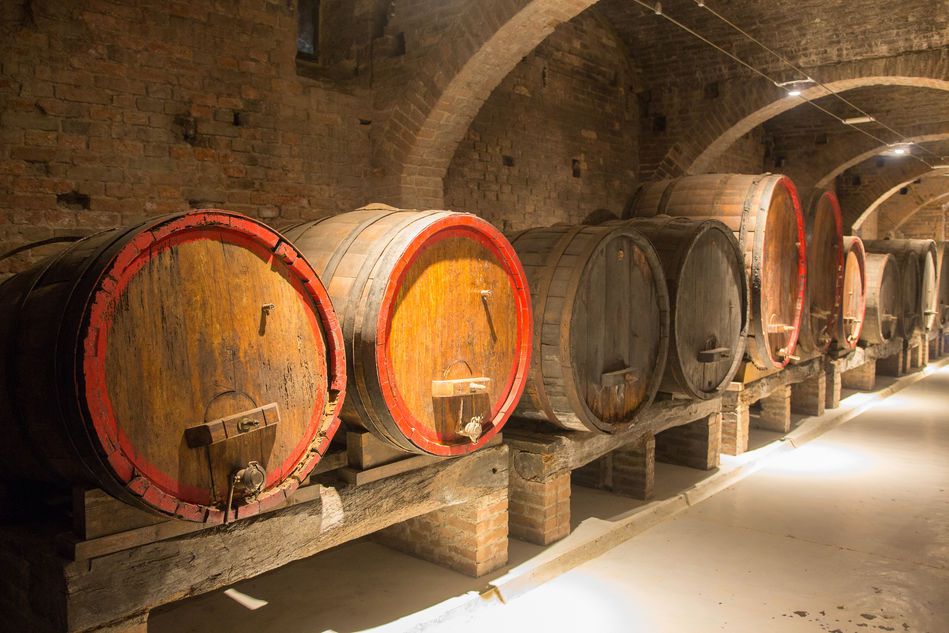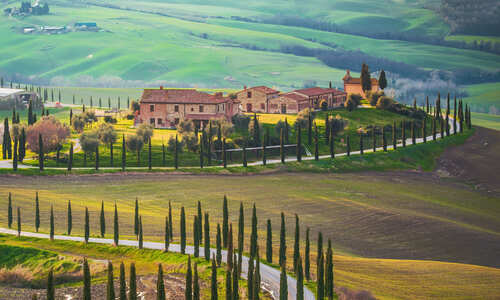Article content
2 September 2016 by Maddalena Cardone
If music be the food of love then wine is its tipple of choice. Unsurprisingly, then, no holiday to Italy would be complete without a pilgrimage to one of its famous wine regions.
In fact, whether you’re in the sole of the boot or its heel, you’ll be spoilt for choice as everything from humble supermarkets to dedicated cellars provide tempting indulgence. In all, the quest for your ideal bottle is the perfect way of adding a touch of luxury to your holiday. And, to quote the Bard again, therein lies the rub; there’s simply a fantastic, almost overwhelming, amount of choice. That’s why we’ve collated this at-a-glance introduction to buying wine in Italy with tips on how to read a bottle, match the wine and what to spend. And, if it all sounds appealing, talk to one of our expert consultants to organise your very own tailor-made wine holiday.
Reading the label
Unfortunately there’s no magic shortcut to reading a label. However, through tastings and a bit of research, you’ll start to recognise the regions, types of wine, grape varietals and vintage years that are most respected and, more importantly, that you like. This being said, it’s important to bear in mind the Italian classification system. There are four types:
- Vina da Tavola – colloquially ‘table wine’. While this doesn’t necessarily mean a bad wine, it’s the most unregulated classification. Labels don’t necessarily have to specify a region or grape type; instead, expect statements as general as what colour it is.
- IGT (Indicazione Geografica Tipica) – is for wines that exceed vina da tavola but don’t meet the stringency of the higher classifications. In fact, without the stricter regulations, this gives the winemakers more flexibility, meaning you can expect certain experimental blends.
- DOC (Denominazione di Origine Controllata) – is concerned with geo-specific wines that adhere to exacting boundaries. In turn, only certain grapes can be used in their production.
- DOCG (Denominazione di Origine Controllata e Guarantita) – the DOCG wines are not only specific to a well-defined region but the winery must have been producing wines of a recognised standard for a significant time.
While the above sounds very hierarchal, it serves mainly as a guide, meaning that you’ll find wines of varying quality within each classification. As always, the best advice is following your own tastes.

Food pairings
As with all wine pairings, there’s a certain set of guidelines that works:
- Match the weight of the food with the weight of the wine – a lightly seasoned salad goes best with a crisp white while a hearty stew is best complemented by a full-bodied red.
- Contrast salty food with sweet wines – there’s a reason fresh oysters are paired with champagne!
- The reverse isn’t true. The general idea is that a wine should be as sweet – or sweeter – than its paired food, hence dessert wines.
- Compare acidity with fatty foods. Just as vinegar's sharpness brings out the best in chips, an acidic white will get the best out of oily fish.
With these tenets in mind, here are some well-established matches:
- A barbera grape can bring out the best in a classic lasagne, with the former’s lively acidity complementing the latter’s filling goodness.
- Pair a rich steak with a bold, flavourful amarone whose full-bodied fruitiness more than stands up against strong meaty flavours.
- Unsurprisingly, vermentino, from the region around coastal Liguria, works very well with seafood. Its light body is especially good with shellfish.
- For those hearty, tomato-based sauces, a strong chianti will match those rich Italian flavours that have become the cuisine’s signature.

Pricing
Of course, while there’s a general positive correlation between price and quality, there’s no hard and fast rule about wine pricing, as long as you’re not fishing too low. Just remember to try before you buy and bear in mind that you should follow your taste over recommendations; you’re buying for yourself not anyone else. And, if you’re bringing wine back, you’re more likely to find considerable savings at higher price points. There’s often not much point in picking up a bottle of plonk that you can get back at home for just a couple of quid more.

In terms of practical recommendations, you should be aware that in a few of the less-famous wine regions your money will go a lot further. Cheaper land means more money to be spent on cultivation. It’s the same logic behind expecting to pay a premium for a decent champagne when the same price would get you a superlative white; it’s down to limited land driving up rates as suppliers wrestle for that all important ‘name’. And, at the winery itself, gone are the days, sadly, that you would expect to pay a fraction of retail for a drink at the cantina. However, by visiting the vineyard or cellar, you will be assured not only of a fair price, but that your wine has been stored to the exacting specification of the supplier.


